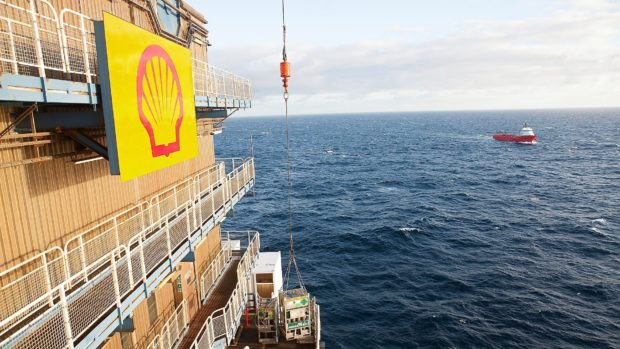Energy Voice
Shell has moved to reassure offshore workers that they will receive their full day rate, even if they’re forced to return home due to Covid-19 concerns.
Shell has moved to reassure offshore workers that they will receive their full day rate, even if they’re forced to return home due to Covid-19 concerns.
 Unions have expressed fears in recent months that some individuals on platforms are holding back on telling bosses that they’re feeling unwell or have been in contact with someone that has been demobilised.
Unions have expressed fears in recent months that some individuals on platforms are holding back on telling bosses that they’re feeling unwell or have been in contact with someone that has been demobilised.
Jake Molloy, RMT regional organiser, says there a “real concern across the sector” that workers are scared to report symptoms for fear of being sent home and losing out on money.
Shell revealed last week that wheels are in motion to introduce pre-mobilisation Covid-19 testing for the offshore workforce as an “additional protection” – it is expected to be rolled out in the near future.
[contextly_sidebar id=”kmQDcMEZVCnxKizXChUFE9tmhPhxOFv1″]
The Anglo-Dutch energy major has been hit hard by the second wave of the virus with outbreaks on several of its platforms in recent weeks.
Energy Voice recently spoke to an individual who claimed that crew on the Brent Charlie installation were concerned that workers weren’t coming forward with symptoms due to uncertainty about losing day rate pay.
A Shell spokesman said: “In recent weeks, our offshore workforce have been reassured that anyone required to return to shore before the end of their scheduled time on the platform, because of COVID symptoms or contact tracing, will receive the full earnings for the days they have worked as well as the days they were due to work.”
Mr Molloy said: “A number of companies have indicated that if the contact trace system determines that you have been close to an individual that is subsequently diagnosed then you get put home and put off pay – there’s a wide spread worry that’s a deterrent to reporting.
“I believe Shell have indicated that they will pay – that’s a very positive and welcome move but, as far as I’m aware, it’s one of the few that’s doing it at this moment in time. There’s lots of examples of that not happening offshore and that’s why there’s this concern.
He added: “A lot of these guys don’t know when there next jobs coming, especially if they’re ad hoc, day rated or zero hours. It’s different for the steady stay, regular guys but for those in precarious employment the threat of losing a three week trip with several thousand pounds is a real incentive not to report.”


